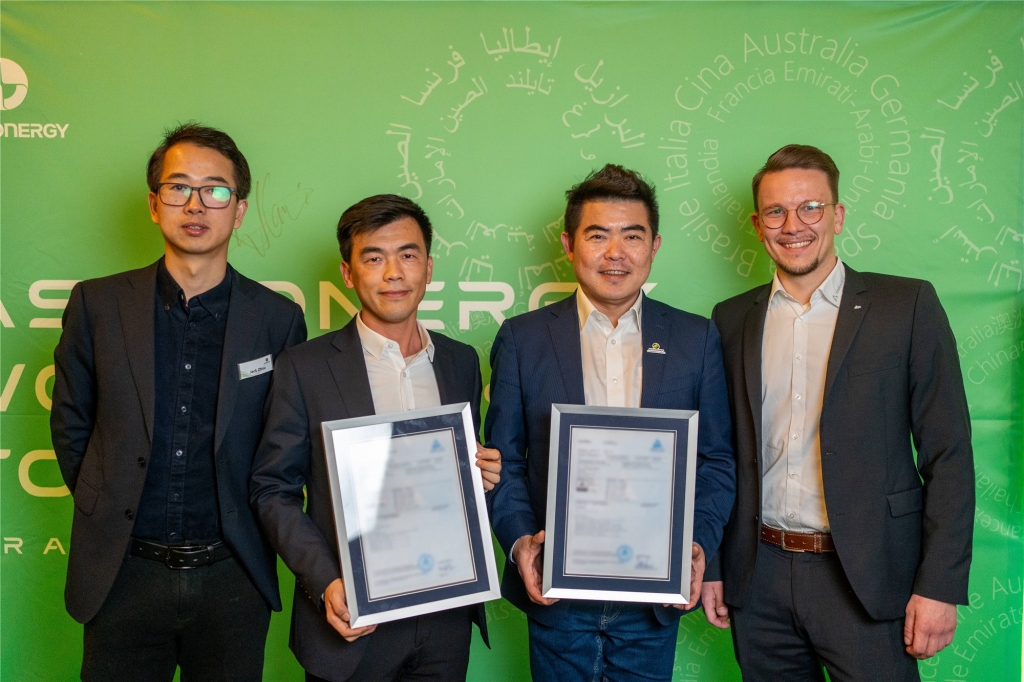


At the Solar Party Germany held on Dec. 7, Astronergy gained the certificates for its ASTRO N7 66-cell TOPCon products and ASTRO N7s ZBB-TF TOPCon products from TÜV Rheinland, certifying these products’ compliance with strict product standards and being ready to ship to global markets for green energy generations at any time.
As extensions of the company’s ASTRO N series products, the ASTRO N7 66-cell TOPCon products and ASTRO N7s ZBB-TF TOPCon products are manufactured based on Astronergy’s independently developed TOPCon 3.0 cell tech, which could enable the cells an average efficiency of over 25.7%.
About ASTRO N7 66-cell products
One of the main differences that make the products unique is the 210mm n-type rectangular silicon wafers the products use. Compared to the mainstream M10 wafers on the market, the 182*210mm wafer‘s area increased by over 15.6%, so they can improve the cells’ and modules’ efficiency and reduce the cost per watt.
Under the standardized module size previously set by Astronergy and other leading PV industry players, 66 pieces of rectangular cells are expected to enable the ASTRO N7 66-cell product to a power of over 615W and a conversion efficiency of over 22.8%, which are both at the tip in the industry.
For utility-scale solar system customers, it has lower BOS costs compared to the 182mm square wafer modules, and the low voltage characteristics of the product could bring benefits to the solar system design.
About ASTRO N7s ZBB-TF products
Specially designed for distributed generation (DG) and residential markets worldwide, the world’s first ZBB (Zero BusBar Interconnection Technology) - TF (Tiling Film) manufacturing techs powered ASTRO N7s n-type TOPCon PV module products has the top conversion efficiency of over 23% among mainstream DG & residential products.
Due to ZBB and TF techs, the products could be manufactured under lower temperatures and be compatible with thinner silicon wafers, thereby helping reduce over 20% silver paste consumption, and cut carbon emissions caused by module product manufacturing. The products will become much more environmentally friendly and more sustainable, while also having better bending resistance performance.
These techs could also help to increase the light-receiving area of the PV cells and reduce the optical losses of PV modules. Due to the removal of the busbar and the elimination of gaps between cells, the ASTRO N7s ZBB-TF module has better current carrier collection efficiency and great aesthetics.
Ready to be massively produced, ASTRO N7 and ASTRO N7s to benefit all possible scenarios with demands.
